Over 30 years of anarchist writing from Ireland listed under hundreds of topics
Housing
The Housing Crisis is Really a Capitalist Crisis - Resist, Repopulate, Reclaim!
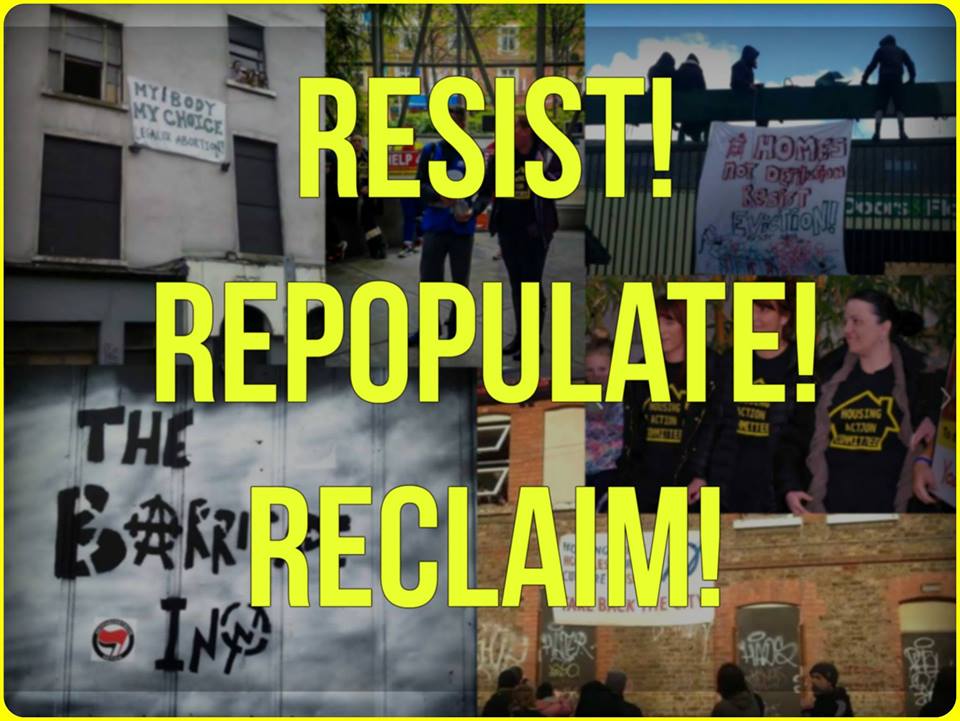 “Ours is a society in which, in every field, one group of people makes decisions, exercise control, limits choices, while the great majority have to accept these decisions, submit to this control and act within the limits of these externally imposed choices. Nowhere is this more evident than in the field of housing: one of those basic human needs which throughout history and all over the world people have satisfied as well as they could for themselves, using the materials what were at hand and their own, and their neighbors labor. The marvelously resourceful anonymous vernacular architecture of every part of the globe is a testimony to their skill, using timber, straw, grass, leaves, hides, stone, clay, bone, earth, mud sand even snow. Consider the igloo: maximum enclosure of space with minimum of labor. Cost of materials and transportation, nil. And all made of water. Nowadays, of course, the Eskimos live on welfare handouts in little northern slums. Man, as Habraken says “no longer houses himself: he is housed” – Colin Ward
“Ours is a society in which, in every field, one group of people makes decisions, exercise control, limits choices, while the great majority have to accept these decisions, submit to this control and act within the limits of these externally imposed choices. Nowhere is this more evident than in the field of housing: one of those basic human needs which throughout history and all over the world people have satisfied as well as they could for themselves, using the materials what were at hand and their own, and their neighbors labor. The marvelously resourceful anonymous vernacular architecture of every part of the globe is a testimony to their skill, using timber, straw, grass, leaves, hides, stone, clay, bone, earth, mud sand even snow. Consider the igloo: maximum enclosure of space with minimum of labor. Cost of materials and transportation, nil. And all made of water. Nowadays, of course, the Eskimos live on welfare handouts in little northern slums. Man, as Habraken says “no longer houses himself: he is housed” – Colin Ward
Grangegorman residents key points on the March 2015 attempt to evict
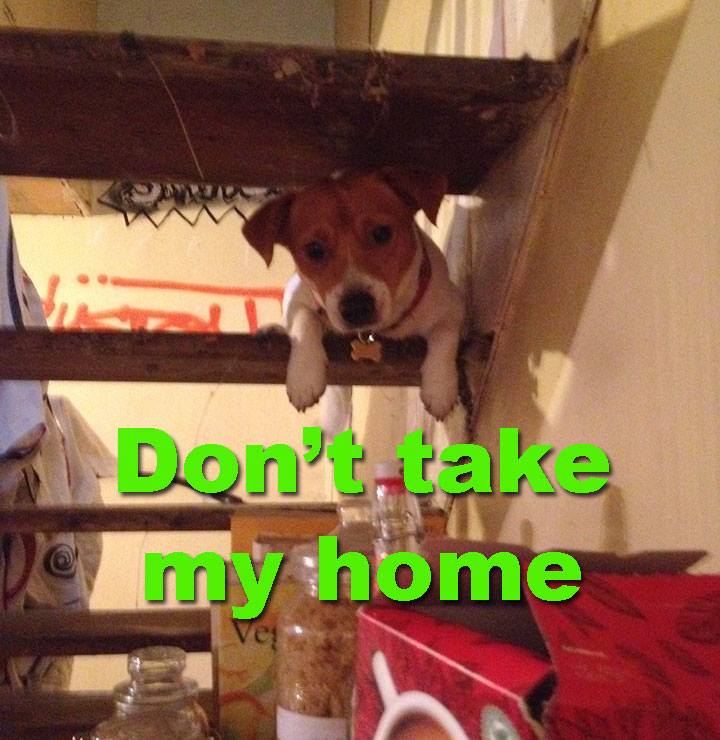 The text that follows was published by the residents of the squatted complex at Grangegorman on 24 March to describe the day long eviction attempt they succesfully resisted on the previous day. It was initally published on their Facebook page and handed out in leaflet form to people walking by the complex. The words are there own.
The text that follows was published by the residents of the squatted complex at Grangegorman on 24 March to describe the day long eviction attempt they succesfully resisted on the previous day. It was initally published on their Facebook page and handed out in leaflet form to people walking by the complex. The words are there own.
On Monday 23rd March, the squatted buildings at Grangegorman, where a community has been living for a year-and-a-half, was the subject of a violent attempted eviction by a large force of contractors and Gardaí. Here is a summary of the situation.
Capitalism in Ireland: Many of Us Have No Home, a Few Have 500+
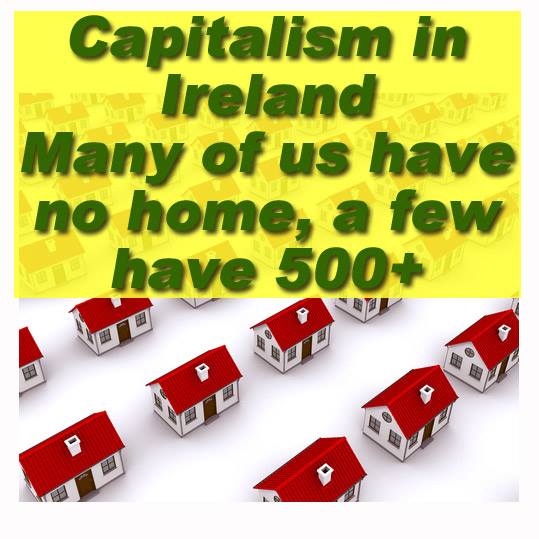 Thank's to the unpopular property tax we at least know slightly more about the super wealthy in Ireland. The government is normally very careful to neither collect information about this group nor to publish it in a way that would reveal the enormous gap in wealth and power between us and them. It would not do to have Joe or Josephine Worker realise that they could work for 10,000 years and still never approach the wealth of the Denis O'Briens.
Thank's to the unpopular property tax we at least know slightly more about the super wealthy in Ireland. The government is normally very careful to neither collect information about this group nor to publish it in a way that would reveal the enormous gap in wealth and power between us and them. It would not do to have Joe or Josephine Worker realise that they could work for 10,000 years and still never approach the wealth of the Denis O'Briens.
Grangegorman resists Eviction
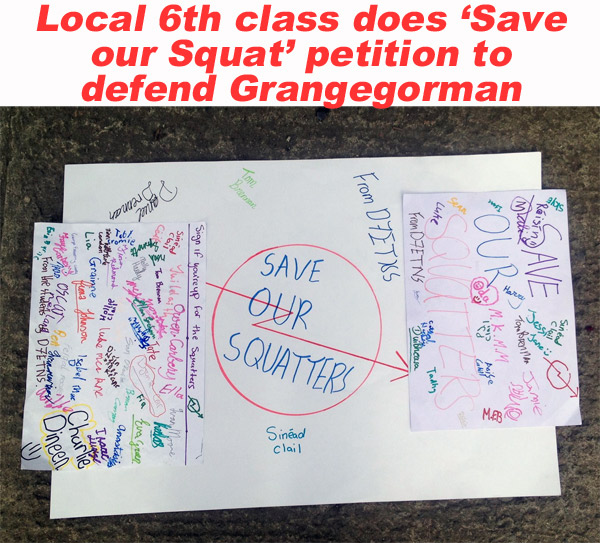 We covered the attempted eviction of the squatted complex at Grangegorman during the week of via our new Facebook page, youtube and Twitter.
We covered the attempted eviction of the squatted complex at Grangegorman during the week of via our new Facebook page, youtube and Twitter.
For those not familar with Dublin the attempted eviction is happening just 100m north of Smithfield Square. The complex consists of a mix of residentical, industrial & commercial premises that had been left derlict for up to 15 years. There had been a couple of eviction scares previously but at 6.30am on the morning of Monday 23rd March the residents were suddenly worken by the sound of a gang of over 30 men smashing their way into the compound and in at least one case into their houses.
One of our reporters was awoke shortly afterwards to a text message sayiong this was happening and they made their way down, the coverage that follows is a result of their work and the work of other WSM reporters. We've edited the updates together and improved their readibility.
Radical Cooperatives: homes without landlords, workers without bosses - DABF2014 audio
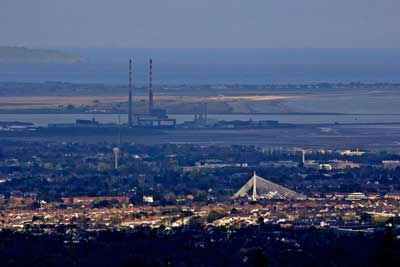 A presentation from the 2014 Dublin anarchist bookfair on the role of radical co-operatives in social change, based on the experience of Radical Routes in the UK.
A presentation from the 2014 Dublin anarchist bookfair on the role of radical co-operatives in social change, based on the experience of Radical Routes in the UK.
Squatting, Urban Politics & the Dublin Housing Action Committee: 1968-71
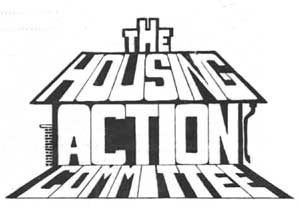 The contemporary crisis of capitalism has made markedly visible the relationship between finance capital and property speculation, between the concentrated money-power of bankers and speculators and the shaping of the built environment in our towns and cities.
The contemporary crisis of capitalism has made markedly visible the relationship between finance capital and property speculation, between the concentrated money-power of bankers and speculators and the shaping of the built environment in our towns and cities.
Housing & the property bubble in Ireland - Bubbles, Booms and Busts
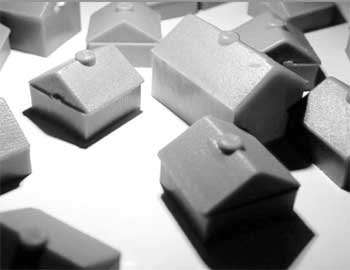 The years from 1995 to 2007 saw record levels of housing construction in Ireland. Construction output went up, land and house prices mushroomed and it seemed as if there was a never-ending bandwagon on which everyone was going to get rich by simply waiting for their pile of bricks to increase in value.
The years from 1995 to 2007 saw record levels of housing construction in Ireland. Construction output went up, land and house prices mushroomed and it seemed as if there was a never-ending bandwagon on which everyone was going to get rich by simply waiting for their pile of bricks to increase in value.
First published in The Irish Anarchist Review 2
A whole new lexicon of terms and vocabulary entered the everyday parlance – terms such as ‘starter home’, ‘property ladder’, ‘first time buyer’; Newspeak phrases such as ‘affordable housing’ were bandied about. Houses and housing estates were advertised for sale by estate agents and property developers with colourful banner headlines and slogans such as ‘live the dream’, ‘live the lifestyle’ – it was almost explicitly stated that even the dreary Irish weather could be by-passed by buying an apartment or house in the latest development. It seemed as if the dream would go on forever. But in mid 2007, disaster struck. With the onset of the world- wide recession, Ireland’s very own property bubble burst with a huge bang and left only destruction behind it. The dream turned to a nightmare for many people and the vocabulary was now dominated by terms such as ‘negative equity’, ‘ghost estates’ and ‘price collapse’.
Housing Crisis - renting in Ireland
Housing is one of people's most basic needs. Yet it is a need that the 26 county state [1] has consistently failed to supply to a significant number of its people. It seems that the Irish housing crisis is permanent, becoming more severe from time to time, but never disappearing. Despite the Celtic Tiger economy and the building boom, waiting lists for social housing continue to lengthen. Over 37,000 people are currently waiting. Are we to believe that this lack of housing is inevitable, that it is impossible to build houses quickly enough to satisfy the demand?
Claire Byrne Live and the anarchist menace
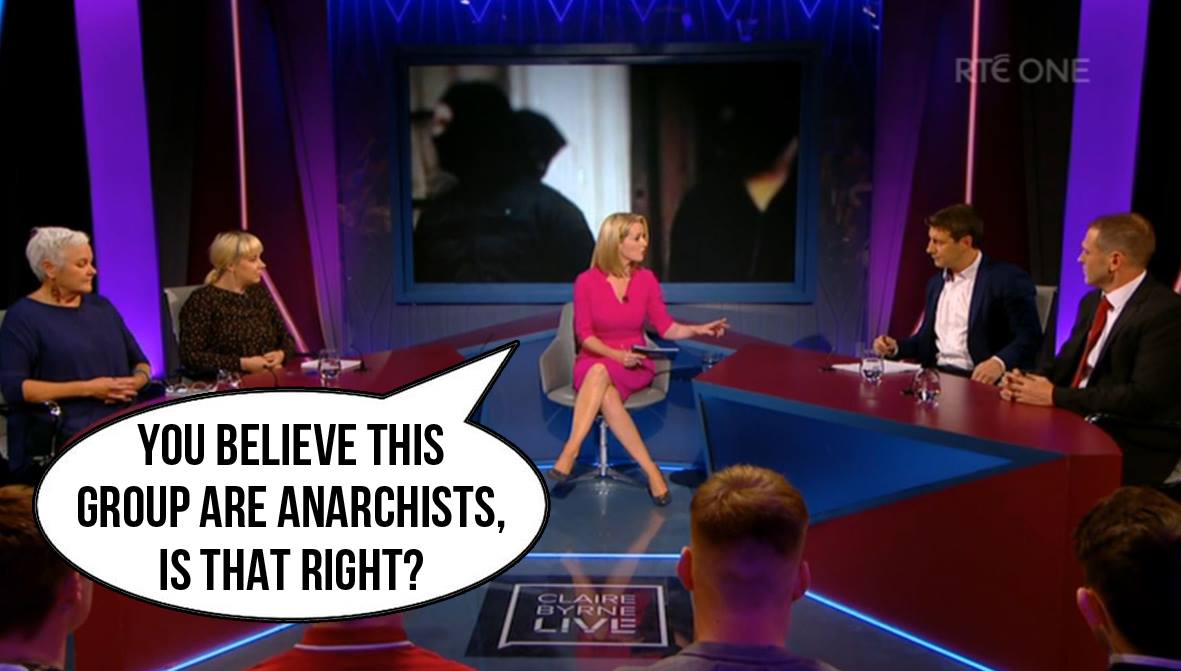 We missed this last week.
We missed this last week.Claire Byrne: [Take Back the City] "have pledged to train up volunteers on how to occupy vacant buildings across the country. We have them here tonight, we're going to talk to them in a minute but first of all I want to come to you, councillor Paddy Smyth because you believe this group are anarchists, is that right?"
-End quote-
Long term empty houses highlighted in Kildare
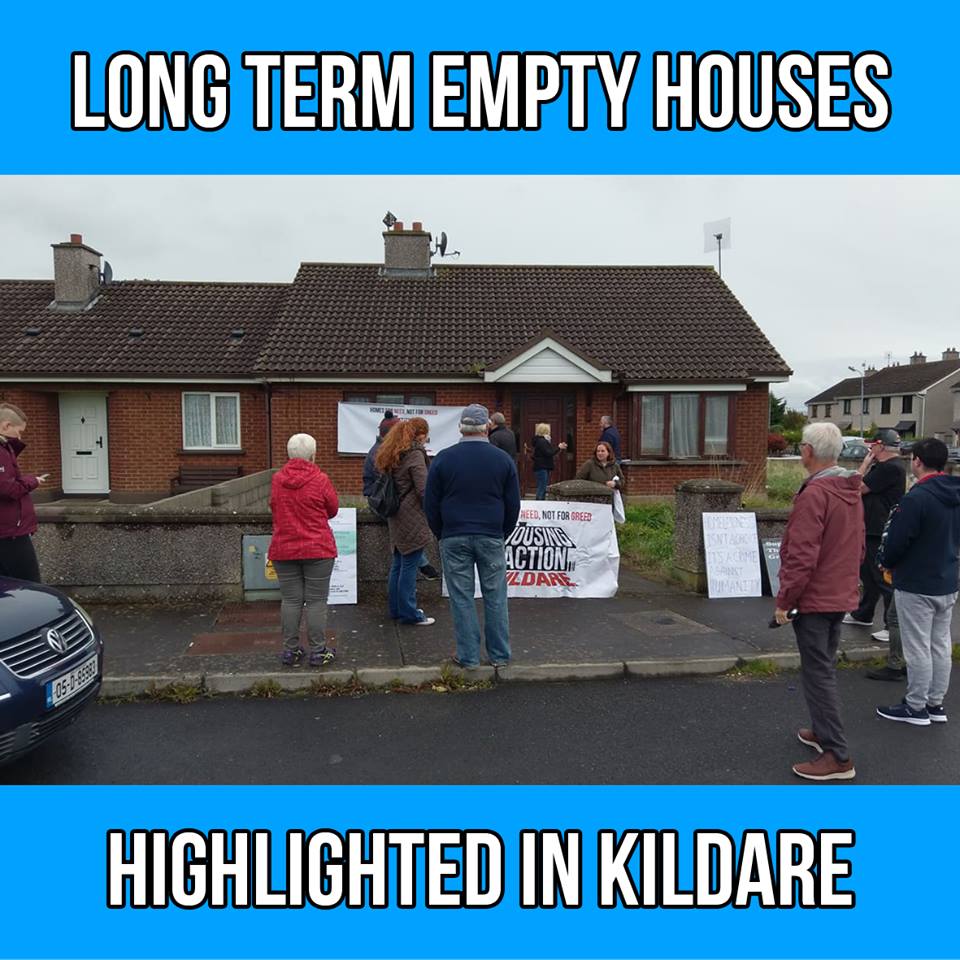 As part of the Take Back the City National Day of Action, housing activists with Housing Action Kildare had a banner and leaflet drop in Newbridge on Sept 22nd, centred around a 4 bedroom house that has been empty for up to 7 years and is owned by a bank.
As part of the Take Back the City National Day of Action, housing activists with Housing Action Kildare had a banner and leaflet drop in Newbridge on Sept 22nd, centred around a 4 bedroom house that has been empty for up to 7 years and is owned by a bank.
